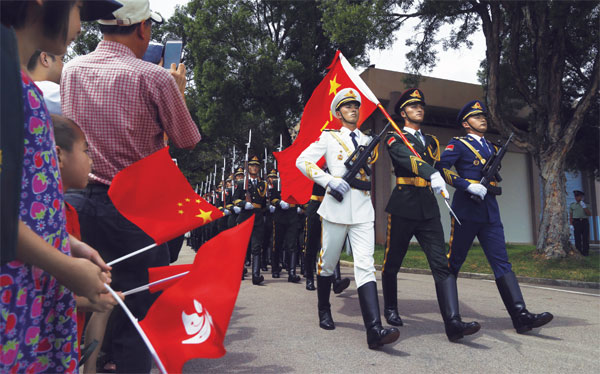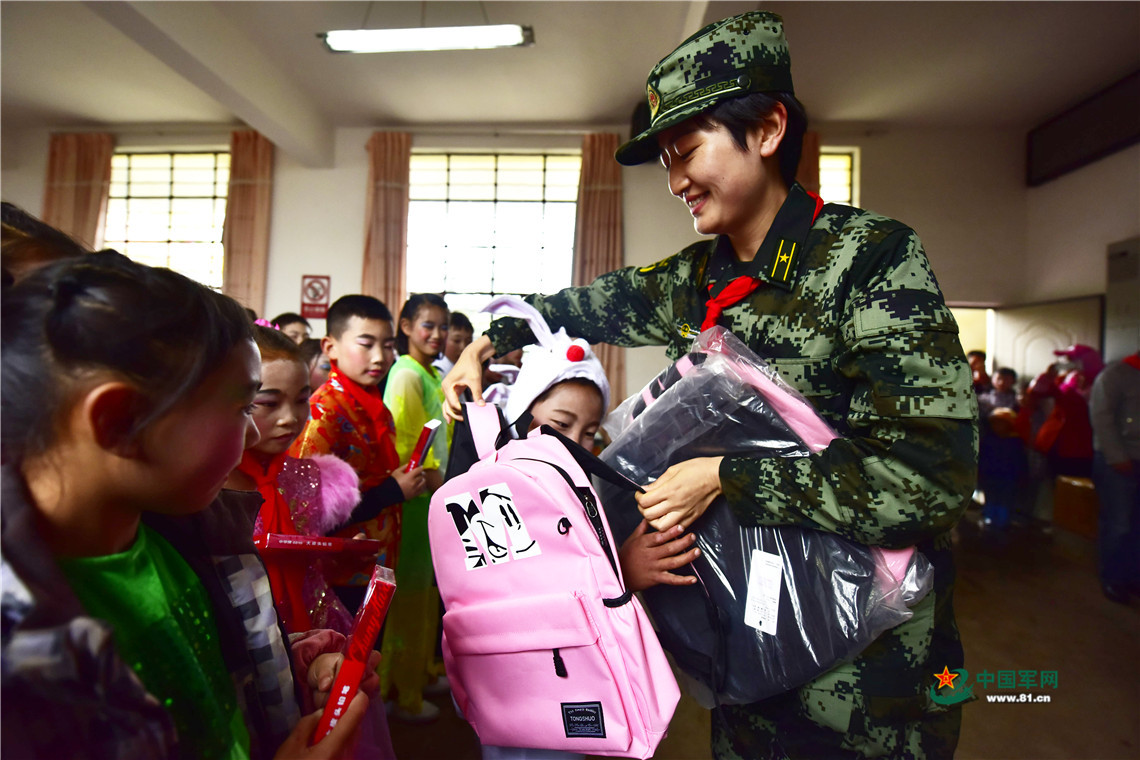BEIJING, May 27 -- During the ongoing two sessions, some military deputies shared experience on topics in the educational sector that have drawn close attention recently and submitted relevant motions and proposals.
Deputy Zhang Xuefeng: revise the law on national defense education and open some military drills to the public
Given the significant changes in China’s security and development situation, the existing National Defense Education Law of the People’s Republic of China has encountered new problems during implementation, said Major General Zhang Xuefeng, a deputy to the NPC and the deputy army commander of the Eastern Theater Command. He suggested making national defense education more targeted by differentiating specific contents for different groups, such as primary and middle school students, college students, Party and government personnel, enterprise employees, and militia and reserved forces.

The deputy also suggested a higher degree of openness of the military camp to the public. In addition to camp tour, display of weapons, military performances, and even some military exercises could be opened to the public so that people will have a deeper understanding of and affection for the PLA.
CPPCC member Wang Lianying: strengthen scientific research on military sports to build the troops’ combat capabilities
Military sports make an important component of military training. How to make them better serve the troops’ combat capability building is what Wang Lianying, once an athlete, has been much concerned about.
Wang Lianying, a CPPCC member and deputy director of the Military Sports Training Center under the Training and Administration Department of the Central Military Commission (CMC), made three proposals.
First, scientific research on military sports shall be intensified to better guide military training and the Military Sports Training Center shall provide good services for the troops in that area.
Second, training of military sports talents in grassroots military units shall be improved to make them more capable in organizing training.
Third, new ways and methods of shall be explored to better serve the service members, such as inviting military sports experts and stars to answer their questions online. Meanwhile, experts should be invited more frequentlyto impart experience to grassroots units.
Deputy Gu Qingyue: help poor school children in Tibet by leveraging the military’s special educational strengths
Winning the decisive victory in poverty eradication is one of the most discussed topics during this year’s two sessions. Gu Qingyue, a deputy to NPC and instructor with the Air Force Engineering University, suggested leveraging educational resources of military academies to help poverty eradication, so as to further enhance stability inborder areas.

Since 2007, Gu has began to help Tibetan children at the Lantian Chunlei Primary School in Xunhua Salar autonomous county in Qinghai Province and initiated the “Golden Hada” student aid program later. This year she planned to expand the program by giving more lectures on defense education. Next, she plans to build tutoring groups on online platforms and establish the one-on-one remote tutoring mechanism to help the students resolve problems and foster their ambition and aspiration.
Deputy Wang Xiaoxia: enhance vocational education for non-commissioned officers
Deputy Wang Xiaoxia, an associate professor with a non-commissioned officer school under the PLA Rocket Force, has been engaged in non-commissioned officers’ vocational education for more than 20 years and has worked on several innovative real-combat teaching and training methods.
Over the years, she has had close communication with the combat forces and adjusted her teaching contents and approaches accordingly to make her classes as similar to the battlefield as possible.
She found in her investigations that it is necessary to improve the vocational education of non-commissioned officers as they are playing an ever-greater role in troops. For that purpose, she made proposals on top-level design and auxiliary policies and systems.









